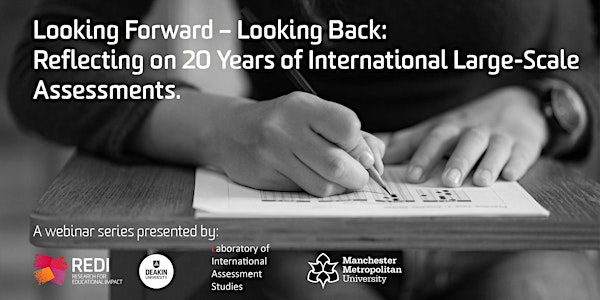Looking Forward – Looking Back: Reflecting on 20 Years of International Large-Scale Assessments.
Even in ordinary times, 2020 would be the kind of date to inspire reflection, as the start of a new decade and as a reminder that there are a mere 10 years left to achieve the ambitious UN Sustainable Development Goals (SDGs). It represents two decades over which the influence of international large-scale assessments (ILSAs) has grown dramatically, particularly with the rise of the OECD’s PISA, and the establishment of ILSA techniques and comparisons as a global policy force aiming to put an end to ‘learning poverty’. Over the last 20 years, ILSAs have promoted international comparisons, pioneered new digital technologies, and included new assessment domains. Their continued rise and their centrality to educational policy and practices of the future looked certain. But COVID-19 has upended everything, including the ways that we view the future of education. This, then, is a suitable moment to pause and reset, to consider what has been achieved, and what might come next – to develop a new form of ‘2020 vision’.
As countries close their borders to protect themselves and re-align their policy priorities, speculation about the end of globalisation as we knew it are rife. The techniques and metaphysics that underpinned the influential ‘hard’ sciences of statistics and economics have revealed themselves to be fallible. Long-held, market-based economic theories of growth and consumption, unscathed by mounting evidence of inequality and ecological damage now look vulnerable. The statistical practices of ILSAs that previously gave us such confidence to make projections about the future now serve to highlight the difficulty in predicting even the coming weeks. There may be no ‘post-COVID’ world anytime soon: like AIDS, the COVID virus may evade attempts to eradicate it, confronting us with new economic challenges. Socially distanced teaching and assessment may be here to stay in one form or another. Most importantly, COVID has revealed the extent of inequalities and differences between and within nations.
In the face of all this upheaval, what is the relevance of international comparisons? How are pandemic conditions affecting confidence in the predictive power of statistical data and the practical work and organisation of ILSAs in future assessment rounds? Is thinking and planning at a global scale feasible or desirable? How useful do international comparative measures look when set alongside the local contexts and geographies that are reasserting themselves: economic inequalities, social divisions and local educational practices that interact with pandemic effects?
In this webinar series, the Laboratory of International Assessment Studies, together with Deakin University’s strategic research centre Research for Educational Impact (REDI) and Manchester Metropolitan University’s Education and Social Research Institute (ESRI), engages in conversations with leading experts in the field to explore these and other questions in a series of discussions about how international assessments may change as a result of pandemic conditions and priorities.
#20yrsofILSAs
